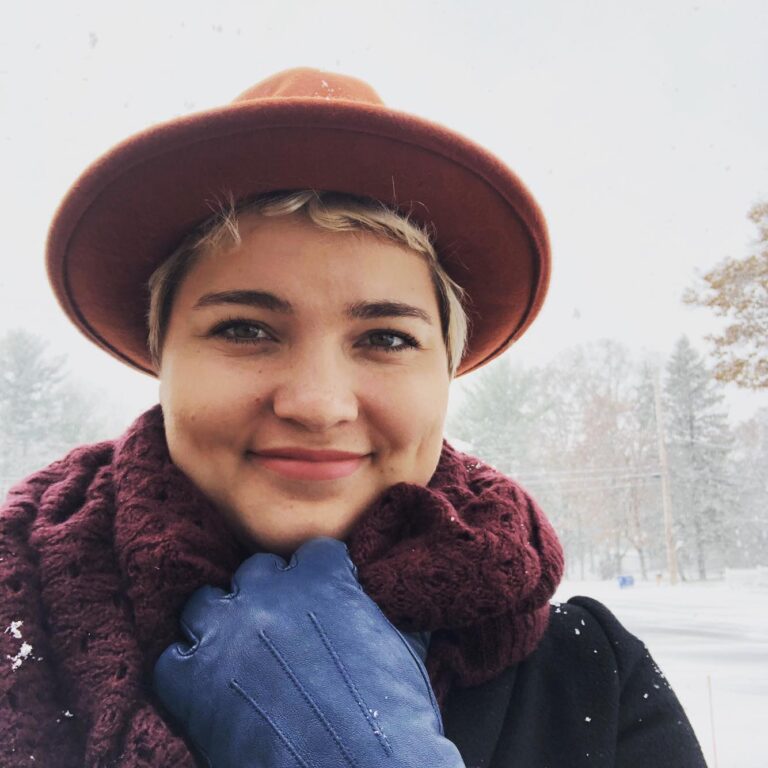I’ve been thinking a lot about happiness recently. And how to get more of it.
In early December I had one of the crummiest weeks I’ve experienced in a long time. Nothing horrible happened. But enough little things piled themselves together that by the time I was watching the Mr. Rogers movie at the end of the week, I was lonelier and sadder than I had been in a long time. Mr. Rogers told me to get in touch with my feelings, and conveniently my body decided to do so on Sunday morning, resulting in me gasping and sobbing my way through giving the benediction. Every pastor’s dream.
I had also foolishly chosen to lead a book club discussion on Charlotte Brontë’s Villette in December. Villette is a book that should be read on a beach, drink in hand, surrounded by your closest friends. Not during a holiday season designed for beautiful families and starry-eyed couples, their pictures mocking you from the Instagram pages you know you shouldn’t be looking at but somehow can’t stay away from. Because Villette is brilliant but also incredibly depressing. Lucy Snowe, the main character, is deeply unhappy and deeply lonely. She has no friends, no prospects at love, and no place to call home.
When her “long-continued mental conflict” leads her to see a ghost in the attic of the school where she teaches, her friend, Dr. John, declares, “Happiness is the cure – a cheerful mind the preventive: cultivate both.”
Lucy muses thus:
“No mockery in this world ever sounds to me so hollow as that of being told to cultivate happiness. What does such advice mean? Happiness is not a potato, to be planted in mold, and tilled with manure. Happiness is a glory shining far down upon us out of Heaven. She is a divine dew which the soul, on certain of its summer mornings, feels dropping upon it from the amaranth bloom and golden fruitage of Paradise.”
Indeed.
And yet it strikes me that we spend so much of our time trying to cultivate happiness. What else are New Year’s Resolutions but attempts at cultivating a better, happier life for ourselves?
“This year I will run a 5k, go on more dates, stick to a budget, develop better habits at work, eat more vegetables, get more sleep, travel somewhere new, Marie Kondo everything I own, and then – then I’ll be happy.”
That’s a lot of pressure to put on vegetables.
It should be almost impossible to be unhappy. There’s a solution to everything, it seems, glittering at us from Barnes and Noble shelves, Insta feeds, and magazine racks.
But what if Lucy is right, what if happiness can’t in fact be cultivated on our own? What if happiness is something that smiles upon us when the circumstances are right?
The week that ended in a tearful benediction, my problem wasn’t that my possessions didn’t bring me joy. My problem was loneliness. I’m not lonely all the time. I have good friends and acquaintances for whom I am truly grateful. But in a town where my friends are married with kids, my acquaintances are parishioners, and my family can visit only infrequently, sometimes loneliness sneaks into my days and settles in for a while.
And I know it sounds whiny and ungrateful to complain about being lonely whilst surrounded by people who care about me. Things could be a lot worse. Don’t worry – I’m very aware of this.
But I have a feeling it’s the very fact that we dismiss our feelings as trivial that leads us to purchasing a gym membership we know we’ll never use. Instead of naming the emotion – I am lonely – we busy ourselves in enough self-improvement to distract ourselves.
The Sunday of the Tearful Benediction, I met with a wise mentor. He had gone through a very painful experience a few years ago, and he talked about what he experienced afterwards as an “abyss.” “What helped,” he told me, “was becoming friends with the abyss. Not running from it, not trying to hide it or ignore it, but becoming more familiar with it so that when it made itself known in my life, it wasn’t so scary, wasn’t so threatening, wasn’t such an emotional upheaval.”
I’m not sure I’d qualify my sometimes-felt loneliness as an abyss. But it’s at least a decently sized mud puddle. And it turns out quite a few of us have such mud puddles in our lives.
In this holiday season I’ve had several conversations with friends I don’t see very often. All of them, from my perspective, have everything going for them. They’ve got great jobs, an exciting dating life, they live in a cool city, belong to a trendy gym, have a wife and kid – they should be happy.
But each of these people told me how lonely they are. How hard it is to make friends as an adult. “I’m surrounded by people,” they tell me, “but so few of them really know me. I feel like I shouldn’t be lonely. But I am.”
If anything made me feel less lonely these last couple weeks, it was this. Hearing that other people are lonely too. And having honest, frank, vulnerable conversations about our loneliness – together.
So I don’t know how to cultivate happiness. I’m sure there’s something about setting goals and achieving goals that leads to satisfaction that might result in happiness. I’m still planning to run a 5k and eat better and tackle my upstairs closet in 2020.
But I think my biggest goal for this new year is to become better friends with my mud puddle. To name the sadness and the loneliness when they come. And then introduce that new friend to some people, trusting them with the puddle. Who knows? Maybe after dipping a toe in, we’ll find that splashing around in mud puddles is a very happy thing indeed.

